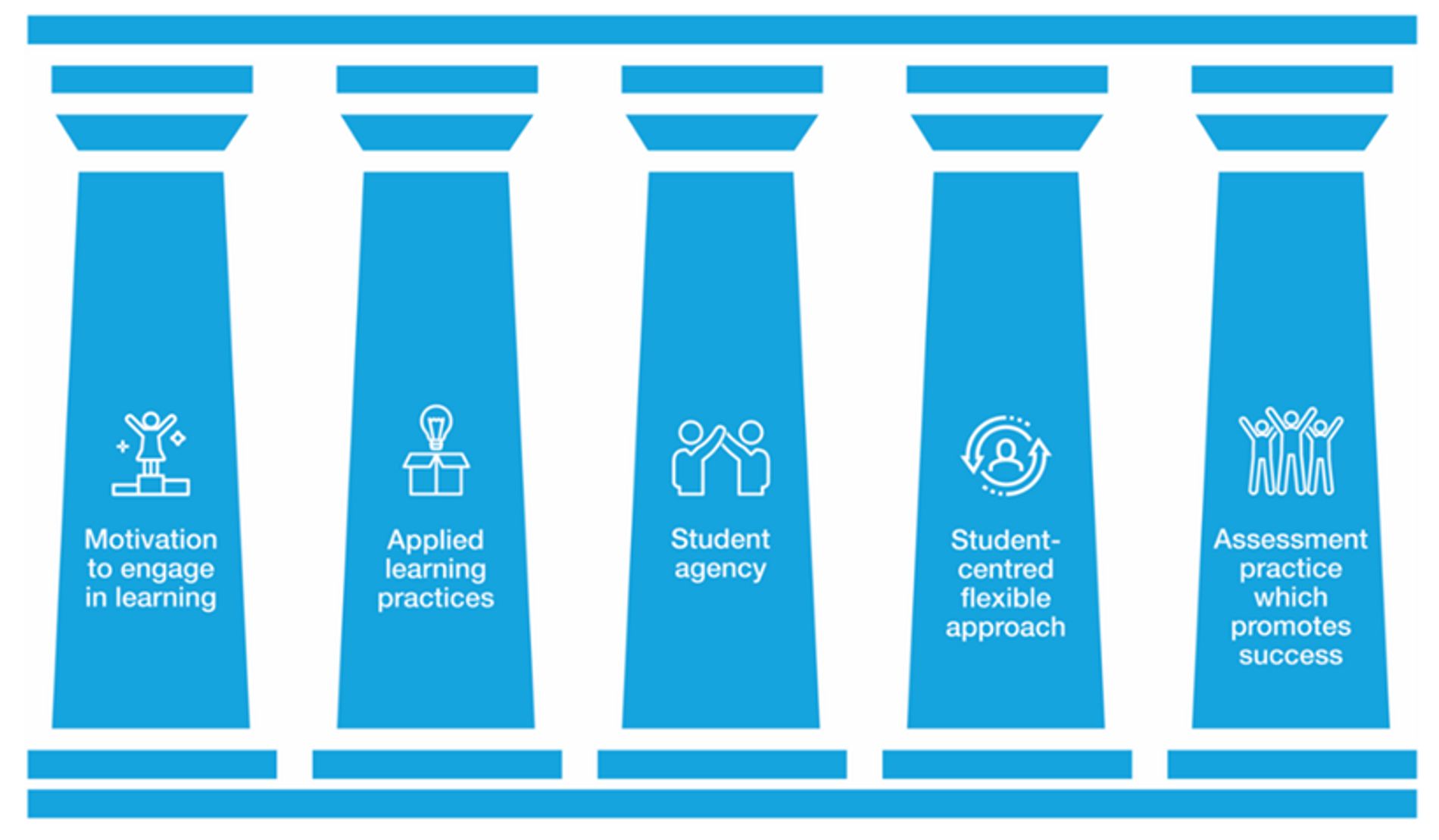The VCE Vocational Major is a vocational and applied learning program within the VCE designed to be completed over a minimum of two years. Students complete a number of VCE Units in Literacy, Numeracy, Personal Development Skills and Work Related Skills specifically designed for the VM, in addition to two VET Certificate courses. It prepares students to move into apprenticeships, traineeships, further education and training, university (via non-ATAR pathways), or directly into the workforce.
Vocational and applied learning in practice.
—
The vocational and applied approach to learning involves students engaging in authentic and motivating learning experiences where theoretical information comes to life in a real-world context that relates directly to their own future, is within their own control, and is within an environment where they feel safe and respected. Vocational and applied learning principles are categorised into five areas, namely, motivation to engage in learning, vocational and applied learning practices, student agency, student-centred flexible approach, and assessment practice which promotes success.

VCE Vocational Major
Victorian Pathways Certificate
The Victorian Pathways Certificate is an inclusive standards-based certificate that meets the needs of a smaller number of students who are not able or ready to complete the VCE or the VCE Vocational Major. It is a foundation secondary qualification that is suitable for students with additional needs, students who have missed significant periods of learning, and vulnerable students at risk of disengaging from their education. It prepares students for a senior secondary qualification, entry level vocational education and training course, or employment.
Dedicated VCE Vocational Major (VM) Units
Literacy focuses on the ability to interpret and create texts that have purpose, that are accurate and effective, with confidence and fluency. Numeracy focuses on students developing mathematical skills with consideration of their local, national, and global environments and contexts, as well as an awareness and use of appropriate technologies. Personal Development Skills takes an active approach to self-realisation, and citizenship, by exploring interrelationships between individuals and communities. It focuses on health, wellbeing, community engagement, and social sciences, and provides a framework through which students seek to understand and optimise their potential as individuals and as members of their community. Work Related Skills examines a range of skills relevant to achieving individual career and educational goals, developing a broad understanding of workplace environments, for a successful transition to their desired pathway.
